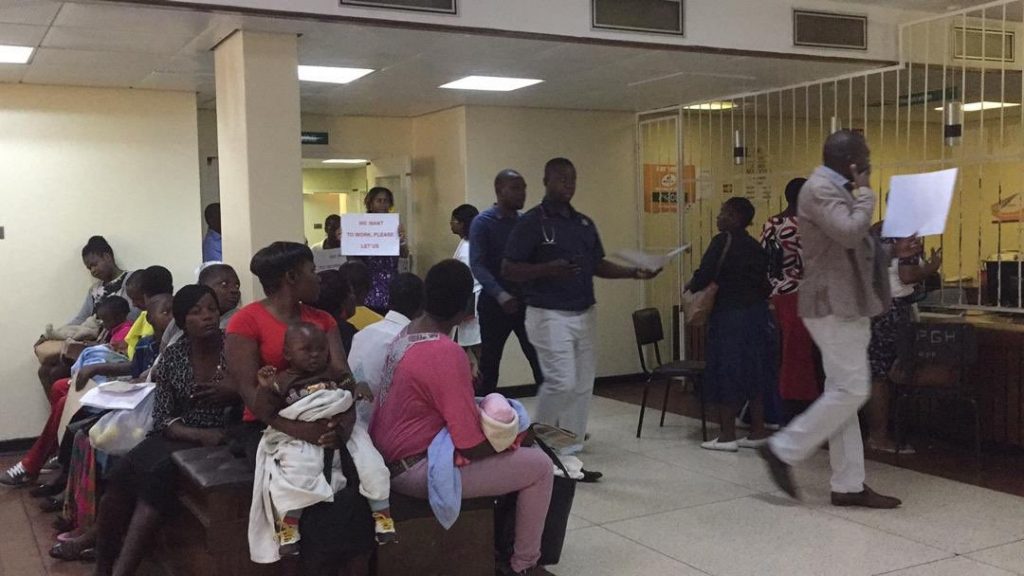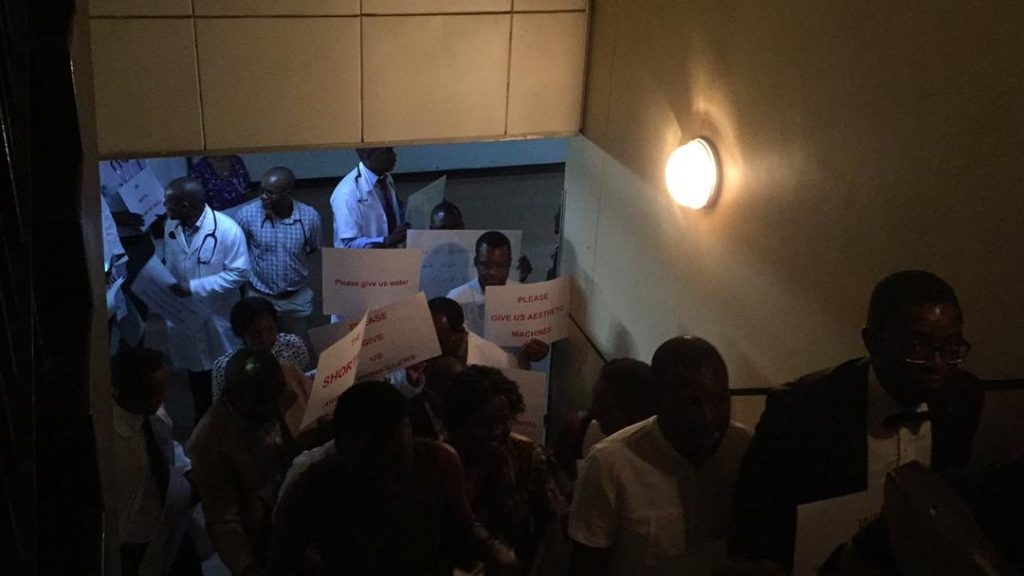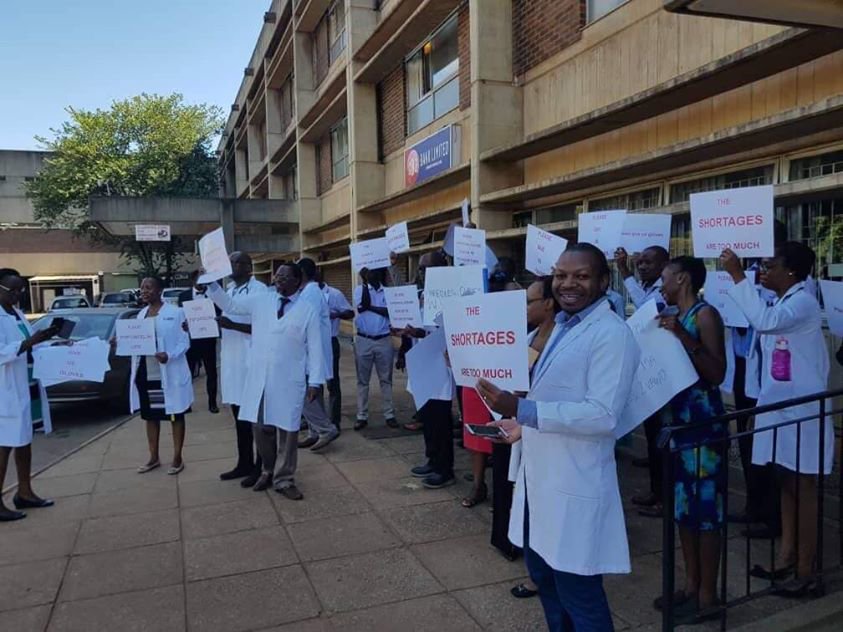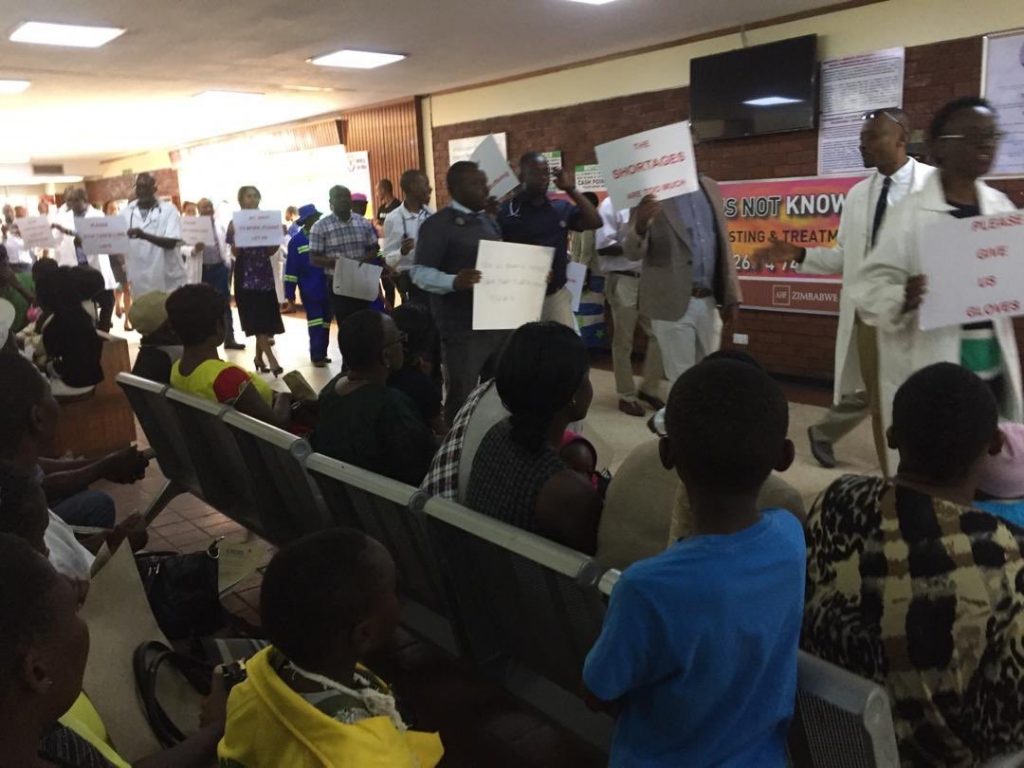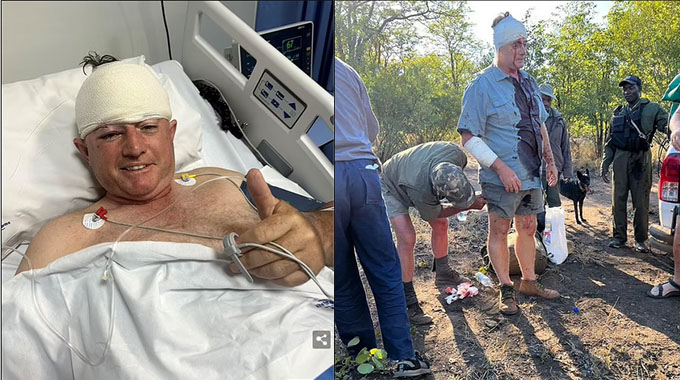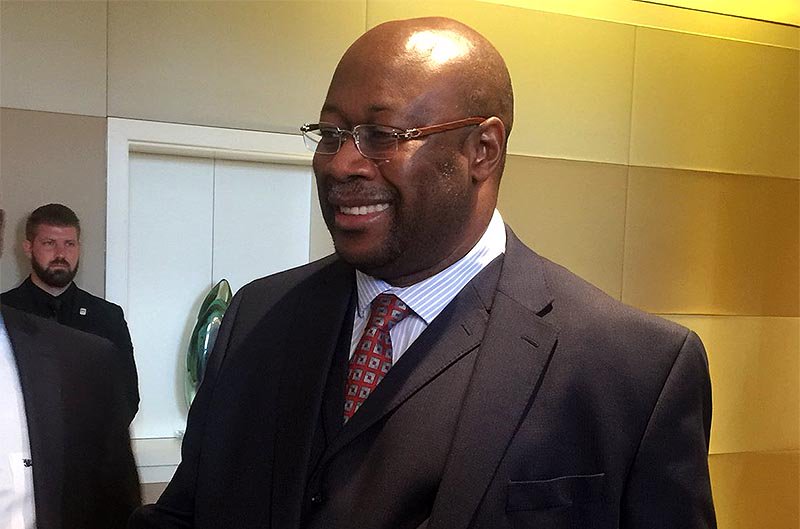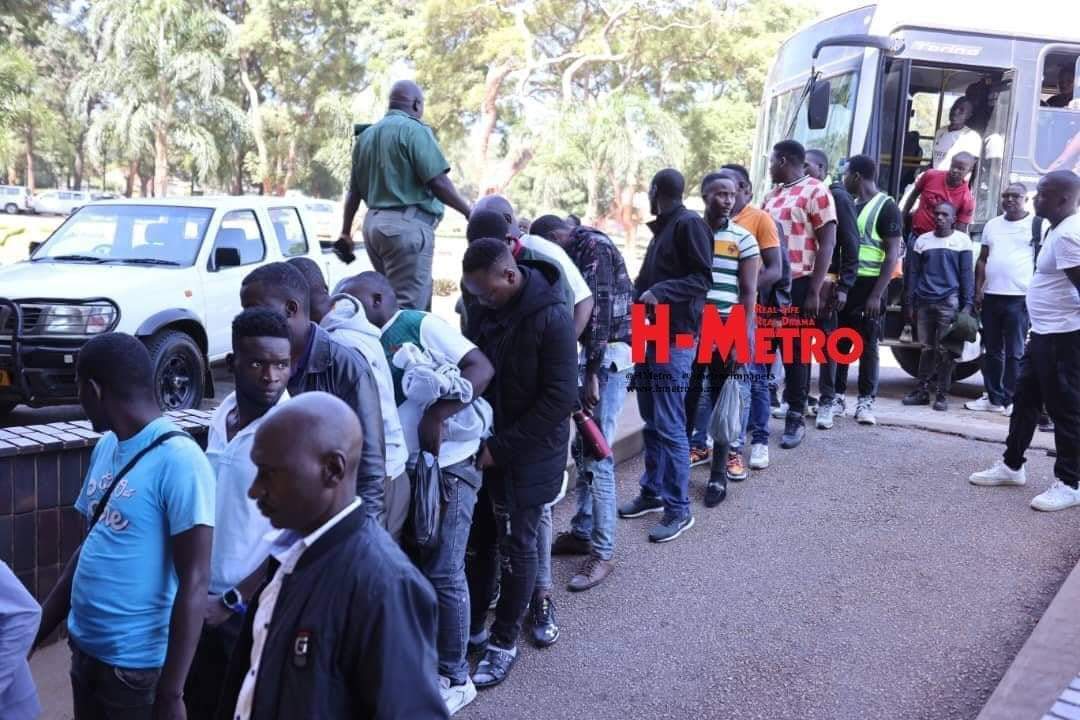HARARE – Doctors said on Wednesday that patients in Zimbabwe’s biggest state hospital were dying due to a lack of medicines and basic supplies, brought on by a cash crunch that has crippled the economy.
In a rare protest by senior medical staff, dozens of consultants picketed outside Parirenyatwa Group of Hospitals. They said they were only able to treat emergency cases and urged the government to provide the equipment they needed to do their jobs.
“I’m just seeing patients, make a diagnosis and send them away to die,” said gynecological oncologist Dr Bothwell Guzha, adding that the hospital had no cancer drugs left.
The country is acutely short of United States dollars, the currency it has used since in 2009, causing price spikes and shortages of basic goods, medicines and fuel.
Plans to float a new transitional local currency introduced last month, the RTGS dollar, have been delayed.
In a subsequent meeting with Health Minister Obadiah Moyo, the doctors described shortages of painkillers, surgical gloves, syringes and said nurses had to wash and re-use bandages, which increased the risk of infection.
Dr Azza Mashumba, fighting back tears, said the theatre in the maternity unit she heads had not been working for some time, forcing doctors to delay caesarean operations, sometimes with fatal results.
“I come to work to certify dead (baby) bodies, that’s not why I’m here… We’re not working, we’re not helping patients,” she told the health minister.
Surgeon Dr Matthew Wazara said the doctors were not on strike but they simply cannot work under the current conditions where there is no water, unreliable electricity and basic sundries amongst other critical supplies.
“We’re not on strike, it’s our desire to strike. The reality is that we can’t work under the current conditions. There’s no water, there’s no soap sometimes to disinfect our hands during surgery. We’re saying we can only cut our cloth according to the material that we have,” Dr Wazara told the minister.
Moyo offered no quick solutions, only promising that the government would speed up the purchase of equipment and other medical supplies. It is a promise they have heard before – late last year into early this year when junior doctors held a 40-day strike for better pay and conditions that crippled public hospitals. It ended without a deal being reached and with doctors threatening further stoppages.
Moyo also threatened to dismiss the hospital’s management for failing to be “innovative”.
“If we feel like we have to change management, we will do it, we do not want to relax and sleep on the job, we have to perform. I was telling the Health Services Board (HSB) that we need those performance appraisals. We might have sanctions and foreign currency issues but we need to be innovative and get around these challenges,” the minister said. – ZimLive/Reuters
